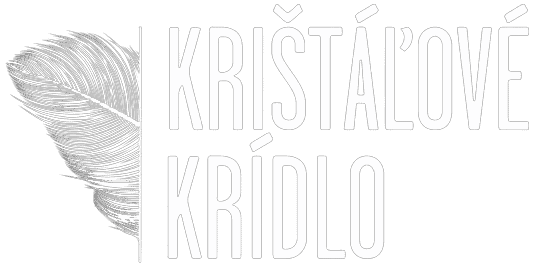The expectations for career growth in the engineering field can be opaque and vary from place to place. There’s a lot of perspectives involved in how one might rank an engineer. Are years of experience really enough to judge a level? To what extent do interpersonal skills influence your placement? Even in different cultures, you can expect differing views of seniority. And – it’s rarely a linear path.
That’s why we wanted to create a transparent guide on what Vacuumlabs expects to see at each level and the nuances that delineate levels – even as the differences start to blur at higher levels.
Before we go through the levels, keep a few things in mind: The level descriptions aren’t a checklist. It’s not expected that you’ll have every trait of the documented levels- rather we look for a developer that embodies the general essence of the level. Specializations are also taken into account- whether you excel at frontend, backend, DevOps or any combination of disciplines. We also look at a variety of skills that work together to create a valuable (and trusted) team member and team lead. Generally, these qualities can be divided into programming (technical skills and knowledge), communication, leadership, business acumen, and the overall attitude of the individual.
Now, if you haven’t already skipped to this part, we can finally get to the breakdown of our seniority levels and the type of growth represented by each one.

10 No professional experience
This first level is self-explanatory. Reality hits and nothing is what it was like in university. Developing in the professional world is new to you. With no work experience, you still haven’t had a chance to develop good habits and best practices. You’re new to processes, designing, prioritization, Git – requiring a lot of guidance from more senior colleagues.
11 Basic professional skills and habits
You’ve developed basic work skills and learned some best practices. You’re a bit more confident working on tasks independently, but still need guidance to stay on the right track.
12 Independent Junior
You are no longer a burden. Just kidding- we love to mentor our new colleagues. What this really means is that you’ve come to understand the basics of developing in a professional capacity, so you can implement complex solutions after extensive discussion with a senior colleague.

13 Thinking before you code
This is the breaking point into mid levels. This landmark is marked by a greater capacity for thinking and planning before coding. Questions like “ How would I implement this? How can I combine tools?” start to come more naturally. You can discuss more complex issues with a senior and, with their advice, execute a solution.
This level also displays a more organized and polished approach to debugging.
14 More Self-Management
This next mid level can be defined mainly by greater management skills – including time management, self-motivation, and burgeoning leadership skills. You’ve gained more self awareness of your own weaknesses, so you can better define time limits and request the support needed to get things done.
You can also coach more junior colleagues. In addition to coaching, a mid level developer would be expected to perform proper code reviews with relevant feedback that has more rigorous reasoning than “I don’t like it done this way”.
At this point, you may even lead small and simple projects.
15 Craftsman
This level is “slightly senior”, possessing all of the qualities of level 14 with a far greater understanding of priorities and the industry as a whole. You’ve honed your technical skills to the point that your code is near perfect at a micro scale – with some inevitable mistakes and confused naming notwithstanding.
At this stage, you’re familiar with certain inevitable deadlines in the business.You know when it’s time to expedite and can do it without harming the codebase. The line on when to push for perfect code and when to just get the feature done is clear to you. You no longer feel compelled to reinvent the wheel every time or follow dogmas, but see things from the business perspective as well.
Not only can you mindfully tolerate an ugly piece of code that doesn’t need to be touched because it works, but you can also persuade your more eager-to-refactor colleague off their crusade.

16 Balanced skill and experience
The first breaking point into senior level brings with it well rounded professional insight. You’ve gained far more understanding of both the business and interpersonal team dynamics.
Knowledge of product, architecture, and the processes should be significantly more refined at this level. In practice, this means you can start to ponder questions like “Does this feature even make sense as designed? Are these priorities in order? How often should we really sync with the Product Owner? How is my team doing and how can I support them?”
With this greater overview, you’re good at spotting potential problems, evaluating them, and working out a solution.
You’ll usually find yourself leading and coaching mid engineers, potentially leading small to medium-sized projects.
17 Technical peak
This is near the peak of technical ability. You have a really strong engineering foundation and know more than one language at an expert level. Essentially, this is a top level programmer in and most growth from this point will be in other areas, barring exceptional cases.
You’re familiar with concepts from languages you aren’t fluent in. On top of that, you have an eye on new trends and can critically evaluate them.
You aren’t terribly agreeable, but not in a negative sense. You have the willpower and confidence to state your case for the best possible result – whether it’s to your team or the client.

18 Team Lead
Up to now, you may have led small projects, but at this level you are considered a full Team Lead – ready to lead complex and larger projects. This requires greater skill to evaluate the costs, benefits, and risks of every decision. Your defining quality lies in analyzing and designing in advance to avoid having to pay for it later. This comes with the willingness to take on the burden of a difficult decision, stopping a discussion to take that responsibility on yourself. You’re wholly in charge and can get to the end goal one way or another.
Thanks to your experiences, you don’t easily fall for seasonal hype, but you always look for the ultimate qualities of the software: simplicity, reliability, and predictability. You are not afraid of breaching any dogma if it seems appropriate. (Yes, global variables can be fine.)
19 + 2 to Charisma
At this point, we are in murky waters. The growth here is mainly marked with more personal development and the confidence you inspire in others.
Level 19 in particular is where you’ve really grown into your leadership role, becoming much more confident and respected by both clients and your team. With clients, you would be trusted to negotiate scope, requirements, and onboarding new engineers.
As for your team, you can provide well rounded feedback both positive and negative in a constructive way. On an interpersonal level, they would trust you with their concerns and problems because you inspire a level of respect and openness.
20 Mentorship and cross-functionally
You’ve seen a little – a lot – more of the professional world, acting primarily as a leader or architect. You’re more confident in escalating issues that you can see will become a bigger problem down the line, able to advise even the most senior engineers.
Product Owners, Project Managers, and other non-engineers can rely on your input and support for their concerns.
21 Multi-tasking
At this level, you are much better at juggling not just multiple business and technical roles, but multiple projects as well. You can dip in and out of projects to provide high level overview, consultations, and management. These deep dives into various projects are quick and effective.
You can lead the most complex and large scale projects we have available.
22 Knowing your limits
In addition to refining all of the traits from levels 10-21, at this stage you have become more humble in your abilities and can self-reflect on mistakes. You’re more adaptable to your own shortcomings and can start to transcend the hubris that can block you from seeing the big picture or making a difficult change.

23 CTO
Should the current CTO mysteriously vanish, you’d be trusted to take over this role.











